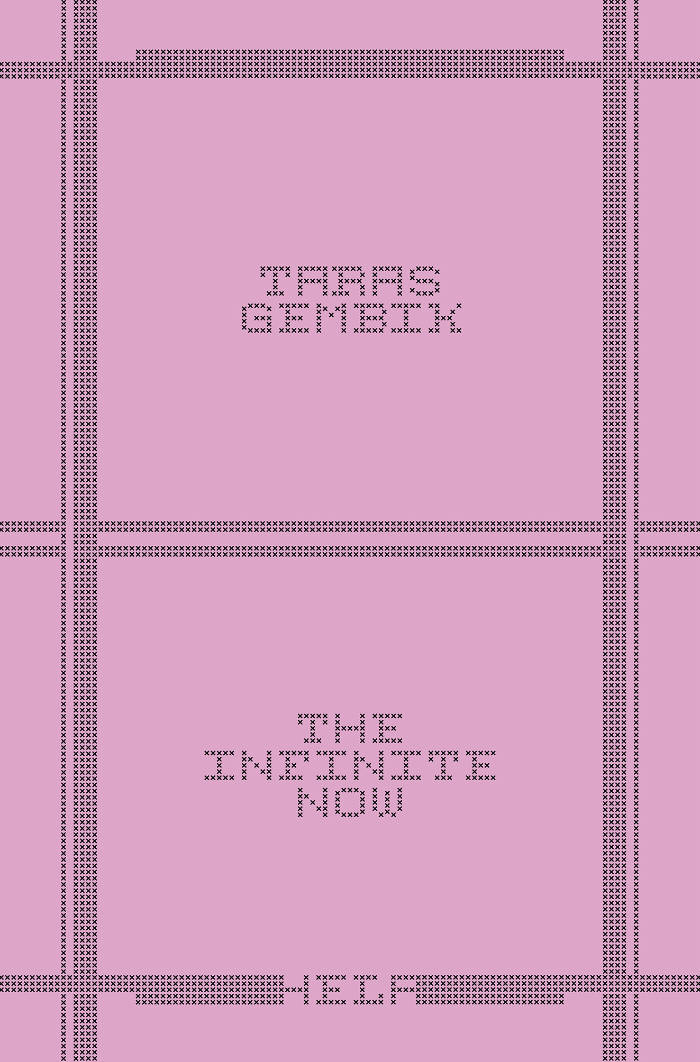
Economy as Intimacy (vol.2)
Language: English

Language: English

Pauline Oliveros (1932-2016) Pauline Oliveros' life as a composer, performer and humanitarian was about opening her own and others' sensibilities to the universe and facets of sounds. Her career spanned fifty years of boundary dissolving music making. In the '50s she was part of a circle of iconoclastic composers, artists, poets gathered together in San Francisco. In the 1960's she influenced American music profoundly through her inclusive work with improvisation, meditation, electronic music, myth and ritual.
She founded 'Deep Listening(R), ' which came from her childhood fascination with sounds and from her works in concert music with composition, improvisation and electro-acoustics. She described Deep Listening as a way of listening in every possible way to everything possible to hear no matter what you are doing. Such intense listening includes the sounds of daily life, of nature, of one's own thoughts as well as musical sounds. 'Deep Listening is my life practice, ' Oliveros explained, simply. Oliveros founded Deep Listening Institute, formerly Pauline Oliveros Foundation, now the Center For Deep Listening at Rensselaer, NY. Her creative work is currently disseminated through Pauline Oliveros Publications and the Ministry of Maåt, Inc

Produced in conjunction with the exhibition that took place at Maison Pelgrims (10/9-23/10/2021), the book presents original interventions by the artists of the rosa rosae rosae project : Alicia Jeannin, Alicja Melzacka, Angela Detanico & Rafael Lain, Annaïk Lou Pitteloud, Audrey Cottin, buren, Charlie Usher, Eleanor Ivory Weber, Eva Giolo, Henry Andersen, Jan Vercruysse, Maíra Dietrich, Marc Buchy, Maxime Jean-Baptiste, Niels Poiz, Oriol Vilanova, Sabir (Lucie Guien, Amélie Derlon Cordina, Sophie Sénécaut / Perrine Estienne, Kevin Senant, Maud Marique, Pauline Allié, Carole Louis), Slow Reading Club, Sofia Caesar, Surya Ibrahim, Yiannis Papadopoulos, Yoann Van Parys
Edited by Pauline Hatzigeorgiou / SB34
Graphic design by Tipode Office
The book was produced with the support of Fédération Wallonie-Bruxelles (aide à l'édition) and Région Bruxelles-Capitale (Image de Bruxelles)

Kris Dittel, Angelica Falkeling
A children’s book without a specific age category, offering a glimpse into the small rituals and shared moments that shape a day with Fifi Paris.
Fifi, a Pomeranian-Chihuahua mix, came into the lives of Angelica and Kris a few years ago. Taking care of a puppy is taking responsibility for building their world and letting the small animal transform yours. As her human caretakers, the authors created Fifi’s world with toys, cuddles, rules, snacks and walks in the park. In return, she transforms our world by bringing our community together and reminding us of the importance of caring for one another. In this book, Kris and Angelica narrate a day in the life of Fifi, from the moment she wakes up to when she falls asleep at night. Along the way, they share how they connect with her, how they see her understanding her surroundings and what she has taught them about companionship.
Design by Amy Suo Wu
Copy-editing by Clem Edwards
Photography by Lili Huston-Hertreich

FUGUES is a study of objects. Elements repeat and imitate one another like a polyphonic canon of voices narrating stories of domestic confinement in looped time.
With images by photographer Nicole Maria Winkler & texts by artist Issy Wood, writer Ella Plevin, model Freja Beha Erichsen and curator Elaine Tam.


A series of choreopoems by Eric Peter. Published at the occasion of 'Assemblages of Intimacy' a group exhibition in a Tale of a Tub, Rotterdam in 2018.

A manual of meditations on grief blocked by trauma, pliers, goats, remedies, meaning, conduits, suicide, eggs, times, tutting, God, lifts, treasury tags, wrecking yards, Douglas Barrowman, involuntary spasms, front desks, manganese deficiency, weevil shit, Mr Sheen, coal potential, the bison, The Final Cut, tone of voice, trillions of cicadas, Elisabeth Koolaart-Hoofman, bogus antler cannibalism, the Preces Gertrudianae, parodies of communication, “Cary Grant’s Wedding,” the corruption of youth, a tripod or cable, Culverwell on the Vacuola, geese, Hemans’s line on Mary Tighe, annihilation, the proletariat, plastic bags, La Compiuta Donzella di Firenze, poetry, rooms, beheadings, S106 obligations, and planks. Containing single, double, triple, and sextuple sestinas, in the old mode of retrogradatio cruciata, and other canzoni, crushed to prose.

In The Infinite Now, Taras Gembik crafts an intimate meditation on solitude, faith, and the search for meaning, ten years in the making. Moving between Ukraine and Poland, these twenty-five poems trace a decade-long journey of self-discovery.
Through stark winter evenings and quiet conversations, Gembik's verses explore ancient and universal questions of existence and identity: the nature of God, the comfort of walls and communion with others, the circular path of memory. The collection transforms everyday moments into profound reflections on love, displacement, how to build community, and the possibility of finding home in transience.
Taras Gembik (born Kamin-Kashyrskyi, 1996, lives in Warsaw, Poland) is a poet, curator, performer, and activist. He is the curator of the public programme at Zachęta National Gallery of Warsaw, where in 2024 he also curated, together with Joanna Kordjak, Siergiej Parajanov's retrospective. Since 2018, he has worked with the Museum of Modern Art in Warsaw to provide a platform for refugees and those afflicted by the homelessness crisis. After Russia's invasion of Ukraine in 2022, he co-created the Sunflower Solidarity Community Centre, praised in an extensive profile in Frieze Magazine, as part of a dossier on "Forms of Resistance".